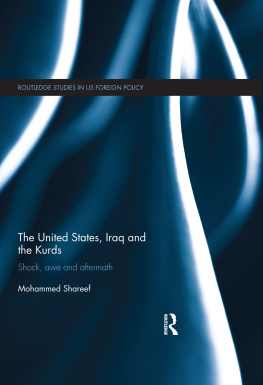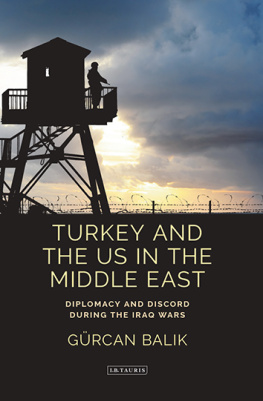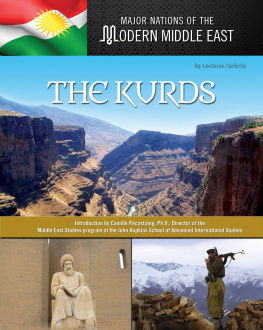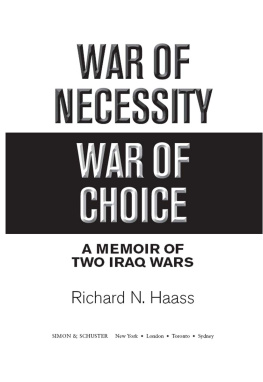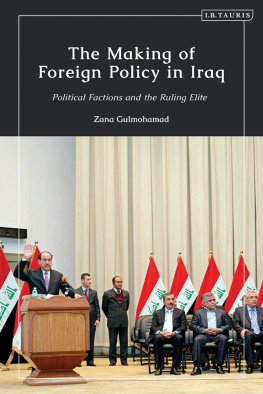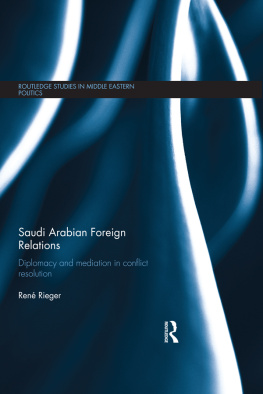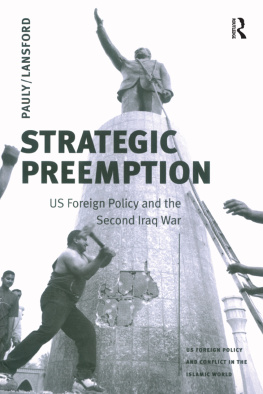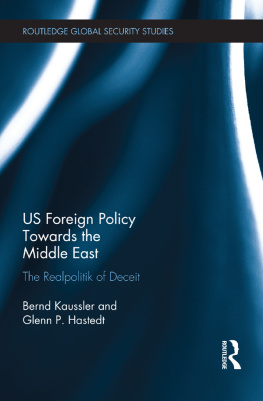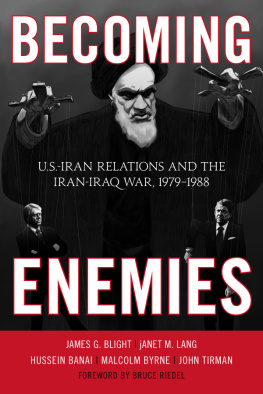There have been few winners following the war to depose Saddam Hussein in Iraq in 2003: the Iraqi Kurds may however be one of them as Mohammed Shareef explains in this lucid volume. We shall now have to wait and see whether a fully independent Kurdistan can become what many thought it never could in the past a source of stability in a region that continues to be plagued by tensions and conflicts. A must read book on a crucial geostrategic issue.
Michael Cox, Professor of International Relations,
London School of Economics, UK
The value of Dr Shareefs excellent new book on Iraq is not just in its discussion of the roots of the crisis, the extraordinary level of detail therein and the enlightening interviews, not only for its rich insights and extensive data collection, not simply for the valuable and textured commentary that it provides on American policy making, but equally importantly for the crisp analysis that it provides of the aftermath of the 2003 war on the body politics of Iraq, particularly on its substantial and often oppressed Kurdish communities. This is one for the reference collection!
Anoushiravan Ehteshami, Professor of International Relations,
University of Durham, UK
Shareefs study is a welcome and timely in-depth study of US foreign policy developments in Arab Iraq and Kurdistan Iraq especially after the US invasion of Kuwait in 1991 and invasion and occupation of Iraq in 2003. He embeds his study in three Grand Strategies: one, 19791990 influenced by the Cold War; two, 19912001, stresses the liberal international strategy and three, the War on Terror from 20022013. Diplomatic scholars will be particularly interested in phase three which analyses the role of the Kurds of Iraq in the formation of US policies toward the wider Middle East; a hitherto topic largely ignored by scholars. During phase three Shareef argues that for geopolitical and geostrategic interests the US pursued (and still does) policies of maintaining a unified Iraq even as developments in Kurdistan Iraq were/are moving toward self-determination. The eventuation of an independent Kurdistan would of course seriously affect US foreign policies toward Turkey, Iran and Syria all of whom oppose an independent Kurdish state in Iraq. This will result in the Kurdish question becoming even a more salient factor in the making of US foreign policies not just toward the Middle East but internationally. Shareefs study is one of only a few that uses Arab and Kurdish based source. I recommend it highly to scholars and policy makers.
Robert Olson, Professor of Middle East History and Politics,
University of Kentucky, USA
The United States, Iraq and the Kurds
This book provides a descriptive and analytical narrative of the evolution of US foreign policy towards Iraq at the supra-national (global), national (Arab Iraq) and sub-national (Iraqi Kurdistan) levels.
The book is unique in that it presents a sophisticated insight into the two major components of US Iraq policy. To achieve this, it addresses US foreign policy towards both Arab Iraq and an entirely original analysis on US policy towards the Iraqi Kurds as components of a larger US Iraq policy, dictated by the supreme US Grand Strategy. The book also examines whether US foreign policy towards Iraq has been one of continuity or change a dimension that has not been illustrated in any other publication. The book deals intelligently and at great length with the events surrounding US Iraq policy in three distinct phases, going back to 1979 with regard to Arab Iraq, and 1961 in respect to the Kurdish liberation movement, covering all subsequent US administrations including the Obama presidency. It provides a thorough examination of US interests in Iraq and reasons for the 2003 invasion and its aftermath. It also engages with the intellectual roots of US foreign policy, presenting an intricate reaction of views, objectives and agendas.
This work will be of interest to students and scholars of Middle East studies, US Foreign Policy and Security studies.
Mohammed Shareef is a fellow of the Royal Asiatic Society (London). He has worked for the UN and is a lecturer in International Relations at the University of Sulaimani in the Kurdistan Region of Iraq. Mohammed completed his PhD in International Relations at the University of Durham and has an MSc in International Relations from the University of Bristol in the United Kingdom. His research interests range from US foreign policy towards Iraq and the Kurds to US policy towards the Middle East in general.
Routledge studies in US foreign policy
Edited by Inderjeet Parmar
University of Manchester
and
John Dumbrell
University of Durham
This new series sets out to publish high quality works by leading and emerging scholars critically engaging with United States Foreign Policy. The series welcomes a variety of approaches to the subject and draws on scholarship from international relations, security studies, international political economy, foreign policy analysis and contemporary international history.
Subjects covered include the role of administrations and institutions, the media, think tanks, ideologues and intellectuals, elites, transnational corporations, public opinion, and pressure groups in shaping foreign policy, US relations with individual nations, with global regions and global institutions and Americas evolving strategic and military policies.
The series aims to provide a range of books from individual research monographs and edited collections to textbooks and supplemental reading for scholars, researchers, policy analysts, and students.
United States Foreign Policy and National Identity in the 21st Century
Edited by Kenneth Christie
New Directions in US Foreign Policy
Edited by Inderjeet Parmar, Linda B. Miller and Mark Ledwidge
Americas Special Relationships
Foreign and domestic aspects of the politics of alliance
Edited by John Dumbrell and Axel R. Schfer
US Foreign Policy in Context
National ideology from the founders to the Bush doctrine
Adam Quinn
The United States and NATO since 9/11
The transatlantic alliance renewed
Ellen Hallams
Soft Power and US Foreign Policy
Theoretical, historical and contemporary perspectives
Edited by Inderjeet Parmar and Michael Cox
The US Public and American Foreign Policy
Edited by Andrew Johnstone and Helen Laville
American Foreign Policy and Postwar Reconstruction
Comparing Japan and Iraq
Jeff Bridoux
Neoconservatism and American Foreign Policy
A critical analysis
Danny Cooper
US Policy Towards Cuba
Since the Cold War
Jessica F. Gibbs
Constructing US Foreign Policy
The curious case of Cuba
David Bernell
Race and US Foreign Policy
The African-American foreign affairs network
Mark Ledwidge
Gender Ideologies and Military Labor Markets in the U.S.
Saskia Stachowitsch
Prevention, Pre-Emption and the Nuclear Option
From Bush to Obama
Aiden Warren
Corporate Power and Globalization in US Foreign Policy
Edited by Ronald W. Cox
West Africa and the US War on Terror
Edited by George Klay Kieh and Kelechi Kalu
Constructing Americas Freedom Agenda for the Middle East
Oz Hassan
The Origins of the War on Terror
Lebanon, Libya and American intervention in the Middle East
Mattia Toaldo
US Foreign Policy and the Rogue State Doctrine

